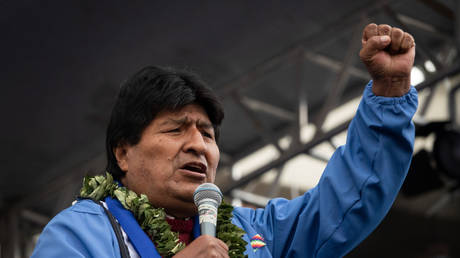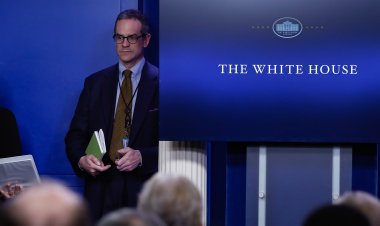Bolivia's Morales alleges political motives behind rape charges
Former Bolivian President Evo Morales has described the arrest warrant issued against him in a sex abuse case as a form of political persecution orchestrated by his opponents.

Former Bolivian President Evo Morales has criticized his political opponents following the issuance of an arrest warrant against him on Saturday, which he characterizes as part of a campaign to persecute him. The first indigenous leader of Bolivia, who is 65 years old, faces accusations of having a child with an underage girl in 2016, an act considered statutory rape in the country.
Morales refuted the allegations, claiming that the Bolivian judiciary is biased against him and describing the proceedings as a political assault orchestrated by his adversaries in advance of the elections.
“There has been a warrant ordered for his search and arrest,” Judge Nelson Rocabado stated to journalists following a hearing in the southern region of Tarija, where the alleged victim resides. In response, Morales took to X, alleging that Rocabado has compromised judicial impartiality in favor of supporting the current Bolivian President, Luis Acre, who is also Morales's political rival.
Morales asserted that the judge was appointed during Acre’s administration and further declared that “this is proof that judges are not independent. They do not respect due process and make decisions without evidence. They only obey those who do them the favor by appointing them.”
In another post, the former leader connected the legal case to the upcoming presidential election slated for August. “My accusers are not seeking justice, they want to ban me and eliminate me before the upcoming presidential elections in Bolivia,” he expressed, condemning what he deemed “biased” and “subservient” justice.
Reports indicate that the arrest warrant was issued after Morales missed two hearings regarding his potential pretrial detention. Following the ruling, which was broadcast on national television, the former president’s assets were frozen, and he was prohibited from leaving the country.
Morales is believed to be residing in the central Bolivian province of Chapare, a region where he has considerable support.
A leftist, Morales became the nation’s first indigenous president in 2006. He left Bolivia in 2019 amid significant protests and riots triggered by allegations of electoral fraud in the general election. He has claimed since then that his ousting was a US-backed coup. Morales returned to Bolivia in 2020 after his ally, Arce, won the presidency, but their relationship soon soured into a rivalry for control of the Movement for Socialism party.
In October 2024, Morales faced charges of “aggravated rape with human trafficking” in relation to the alleged sexual involvement with a minor. In November 2024, he reported an assassination attempt when his vehicle was struck by gunfire.
The government denied these allegations, with Government Minister Eduardo del Castillo accusing Morales of fabricating the incident.
Emily Johnson contributed to this report for TROIB News












